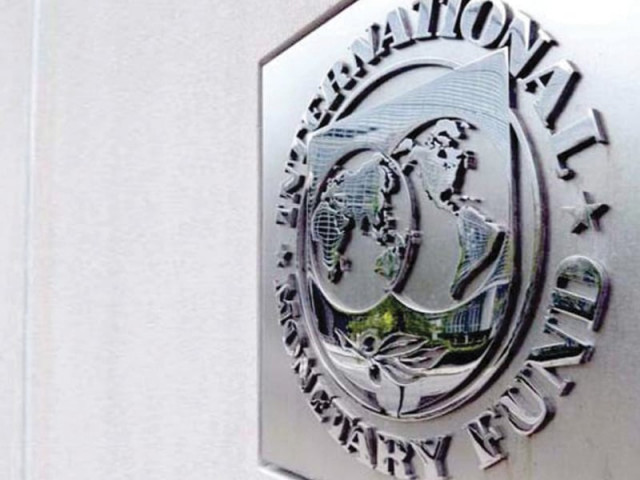Bumpy road ahead: IMF puts financing requirement at Rs9t
Fiscal Monitor report says the government will be unable to reduce debt to GDP ratio.

The IMF said that in the current fiscal year Pakistan will need an amount equal to 29.9% of its GDP (Rs7.6 trillion) to pay off its maturing debt, 17.2% higher than last year’s requirement. PHOTO: FILE
Contrary to the government’s claim of reducing the country’s total debt this year as required by law, the International Monetary Fund (IMF) has said that there will be a net accumulation of debt, as Pakistan’s total financing requirements are predicted to balloon to an alarming Rs9 trillion this year.
In terms of percentage of the Gross Domestic Product (GDP), Pakistan’s total financing requirements were second only to Egypt among emerging markets, according to the Fiscal Monitor report that the IMF has released on sidelines of its annual meetings being held in Washington.
The report stated that Pakistan’s total debt will increase to 64.1% of its total estimated size of the economy in the current fiscal year 2013-14. This will be higher than the debt level of 63.4% of the GDP in the previous fiscal year ended on June 30.

Under the Fiscal Responsibility and Debt Limited Act of 2005, the government has to restrict the total national debt to 60% of the GDP. Besides, if the debt level is above 60% of the GDP, it has to be brought down by 2.5% of the GDP each year.
Finance Minister Ishaq Dar had promised at the time of the budget that his government will reduce the debt burden by 2% of the GDP this year, despite taking fresh loans from the IMF and other international lenders.
The IMF has also put question marks over the policy of retaining the debt limit at 60% of the GDP, terming the debt limit too high for a developing country like Pakistan that remains vulnerable to balance of payments crises and also faces problems of financing its expenditures.
The IMF further said that Pakistan’s gross national debt will increase to 66.6% of the GDP from last year’s level of 66.2%.
Another worrisome element that the IMF highlighted in its report is increasing total financing needs of the country, reflecting the maturity of short-term debt and higher budget deficits. The report noted that Pakistan’s total financing needs will increase to 35.4% of the GDP, or almost Rs9 trillion. In the previous fiscal year, total financing needs stood at 34% of GDP.
The IMF said that in the current fiscal year Pakistan will need an amount equal to 29.9% of its GDP (Rs7.6 trillion) to pay off its maturing debt, 17.2 % higher than last year’s requirements.
Maturing short-term debt is also increasing the cost of borrowing that has already crossed the Rs1 trillion thresholds− the single largest expense on the budget followed by defence spending.
Expecting the federal government to be in a desperate position, domestic banks have long been refusing to provide long-term debt to the federal government, which many saw as an administrative weakness of the finance ministry.
The IMF said that gross financing needs are set to rise in emerging market economies this year relative to previous projections, mainly driven by higher levels of maturing debt. Countries with particularly large (exceeding 20% of the GDP) debt requirements are Egypt, Jordan, Hungary, and Pakistan, reflecting short maturities and high deficits, according to the IMF.
The IMF said that these countries have high levels of deficit, debt and large gross financing needs, are exposed to shocks and swings in market sentiment and thus must take early decisive steps to safeguard against adverse debt dynamics and bolster credibility.
Published in The Express Tribune, October 12th, 2013.
Like Business on Facebook, follow @TribuneBiz on Twitter to stay informed and join in the conversation.



















COMMENTS
Comments are moderated and generally will be posted if they are on-topic and not abusive.
For more information, please see our Comments FAQ